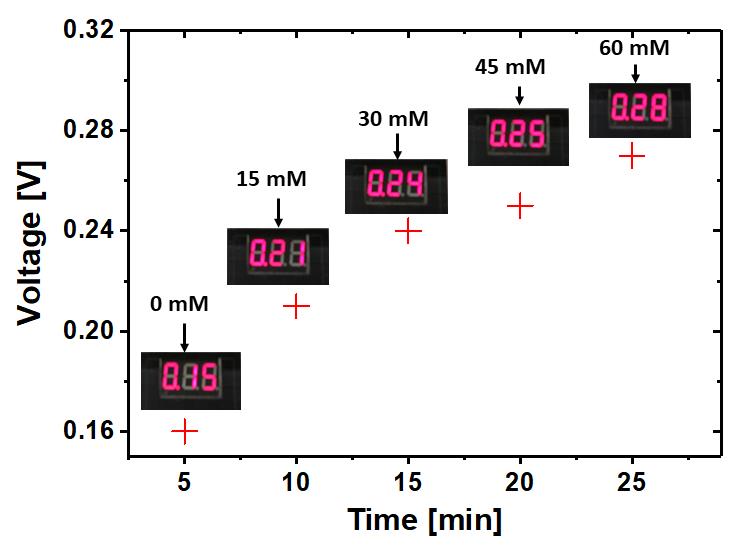|
Sweat Biosensors

|
Stand-alone, portable biosensors attract tremendous attention and show remarkable potential for point-of-care diagnostic applications in developing countries. The use of self-powered sensing strategies can be a realistic and accessible solution because the sensing processes themselves provide power for those applications. The most conventional self-powered sensing technique uses electrochemical energy conversion, where electrical energy can be converted from the sample¡¯s chemical energy and the amount of energy produced can be a function of the sample concentration. Many studies demonstrated enzymatic fuel cells as an electrochemical self-powered sensing platform for detecting various analytes including neurochemicals, ascorbic acid, and ethylenediaminetetraacetic acid. However, the enzymatic fuel cells suffer from short lifetime and environmental instability due to the fragile nature of the enzyme and its poor immobilization techniques. Here, we demonstrated, for the first time, another type of biofuel cell, microbial fuel cell (MFC), as a new self-powered sensing strategy. MFCs use whole microorganisms, containing complete enzymatic pathways and self-assembling/self-repairing their living systems. Furthermore, the read-out process only requires a simple, widely available and inexpensive voltage meter .
|

